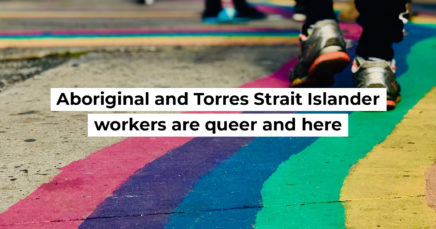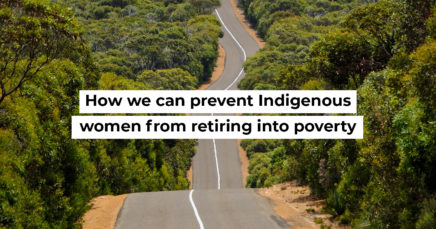Aboriginal and/or Torres Strait Islander peoples should be aware that this article contains the names of people who have passed away.
Kalkarindji is more than 500 kilometres south of Darwin and today boasts a small population. But just over 50 years ago, it was at the centre of a turning point in our history.
Before 1966, across many industries, Aboriginal and Torres Strait Islander workers were often paid around third of what non-Indigenous workers were paid.
Wave Hill (the colonial name for Kalkarindji) was home to what was then the largest cattle station in the world controlled by British ‘beef baron’ Lord Vestey.
At Wave Hill station, wages were around $6 per week for the Aboriginal stockmen. Some Indigenous workers weren’t even given wages and instead only given salt, beef, bread and tobacco.
It was time to act. The workers came together and literally walked away from underpaid work and slavery. On 23 August 1966 Gurindji elder Vincent Lingiari led what is now known as the Wave Hill walk off.
Lingiari with 200 Aboriginal workers and their families set up camp at a sacred site called Dagurago on Wattie Creek and stayed there for nine years.
But the Gurindji strikers were aiming far beyond equal wages. What began as a protest against poor wages and conditions became the spark for something much larger.
Union support for one of Australia’s longest strikes
During those nine years of the Gurindji strike – one of the longest in Australian history – the union movement gave its support and provided resources to sustain the action.
The Waterside Workers Federation drove supplies all the way from Darwin to Wattie Creek. The Australasian Meat Industry Employees Union placed a ban on any products being produced by replacement labour at Wave Hill.
Other unions held mass meetings, raised collections to support the strikers, and pressured politicians to act. By this point, the Girundji strike was a loud nation-wide call for Aboriginal land rights.
The union movement’s history is long, and we haven’t always got it right, but the Girundji strike is an important example of the proud history of union solidarity with First Nations peoples and workers, and how workers in unions across Australia stood with Indigenous workers.
Land back
In a 1968 interview with the ABC while the strike continued, Lingiari explained that land rights were at the core of the Wave Hill walk off.
“What was it before Lord Vestey born and I was born? It was blackfella country,” Lingiari said.
Lingiari and the 200 workers were fighting against not only Lord Vestey but centuries’ worth of white station owners enslaving Aboriginal workers and cutting Aboriginal communities off from access to waterholes, forcing them to leave their land.
Many Aboriginal workers ended up working for rations at stations like Wave Hill because they had been driven off their own land. This exploitation was how workers’ rights and land rights became bound together.
In August 1975, Labor Prime Minister Gough Whitlam symbolically poured earth from the Gurindji land into the hands of Vincent Lingiari and presented a leasehold over part of their land.
Union members mark this historical moment in recognition of the heroism of Indigenous workers, activist and leaders who led the incredible movement. But we do so knowing full well that the struggle continues today.
Australia has a dark history of exploiting Indigenous workers for cheap or free labour – a history that has continued to the present day.
A core focus of the First Nations Workers’ Alliance (FNWA) has been the abolition of the racist Community Development Program where many Aboriginal and Torres Strait Islander workers have been denied basic rights while working-for-the-dole.
The FNWA exists because there is still so much work for us to do to ensure Aboriginal and Torres Strait Islander workers are paid fair wages for their work. The Alliance provides a voice to CDP workers, listens to their concerns, and calls for wage justice.
To support fair wages for Aboriginal and Torres Strait Islander workers, join the FNWA today.



